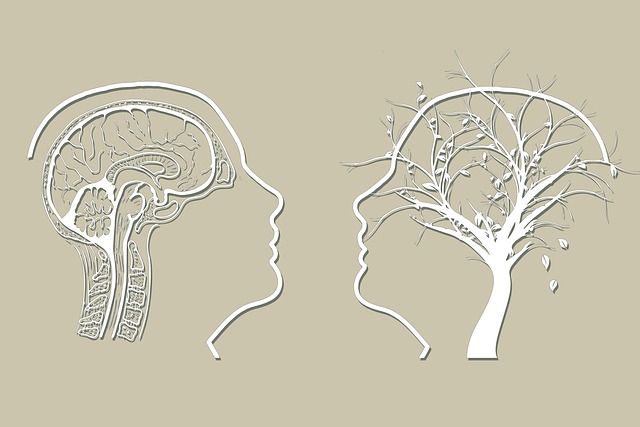The Colorado Springs Cognitive Processing Therapy (CSPCT) is an innovative mental wellness approach with its effectiveness evaluated using diverse methods, including pre-post testing and qualitative assessments. Their community outreach program is further assessed through case studies and focus groups. Participant feedback from satisfaction surveys provides crucial insights into the therapy's success, self-care adoption, and areas for enhancement. Longitudinal tracking of mental health outcomes via Mind Over Matter principles allows therapists to assess treatment sustainability and intervene early on relapses, refining therapy approaches for continued mental wellness in Colorado Springs and beyond.
Mental wellness program evaluations are crucial for understanding the efficacy of therapeutic interventions, such as Colorado Springs Cognitive Processing Therapy (CCPT). This article explores three key methods to assess the impact of CCPT: Assessing the Impact through Methods and Metrics, Participant Feedback via Satisfaction Surveys, and Long-term Tracking of Mental Health Outcomes through Follow-up Evaluations. By examining these approaches, we can gain valuable insights into the program’s success and identify areas for improvement.
- Assessing the Impact of Colorado Springs Cognitive Processing Therapy: Methods and Metrics
- Participant Feedback and Satisfaction Surveys: Unlocking Insights for Improvement
- Long-term Tracking of Mental Health Outcomes: The Role of Follow-up Evaluations
Assessing the Impact of Colorado Springs Cognitive Processing Therapy: Methods and Metrics

The Colorado Springs Cognitive Processing Therapy (CSPCT) has garnered significant interest for its innovative approach to mental wellness. Evaluating its impact involves a meticulous process utilizing diverse methods and metrics. Researchers employ pre-post testing, where individuals participating in CSPCT are assessed before and after the therapy program, measuring improvements in symptoms, cognitive function, and quality of life. This quantitative analysis provides concrete data on the effectiveness of the treatment.
Additionally, qualitative assessments, such as participant surveys and interviews, offer deeper insights into self-esteem improvement, self-care practices, and personal growth. The community outreach program implementation within CSPCT is another crucial aspect evaluated through case studies and focus groups, highlighting its potential to create a supportive network that enhances overall mental wellness in Colorado Springs.
Participant Feedback and Satisfaction Surveys: Unlocking Insights for Improvement

Participant Feedback and Satisfaction Surveys are powerful tools for evaluating mental wellness programs, offering valuable insights into program effectiveness and areas needing improvement. These surveys provide a direct line to the experiences and perceptions of individuals who have undergone therapy, such as Colorado Springs Cognitive Processing Therapy. By asking targeted questions about their overall satisfaction, the quality of therapy sessions, and perceived improvements in symptoms or daily functioning, programs can gain a nuanced understanding of participant experiences.
The data collected from these surveys is not just quantitative; it often reveals stories and sentiments that highlight specific communication strategies employed by therapists or areas where additional support through public awareness campaigns development might be beneficial. Moreover, satisfaction surveys can shed light on participants’ adoption and integration of self-care practices learned during therapy, enabling programs to refine their approach for better outcomes in the future.
Long-term Tracking of Mental Health Outcomes: The Role of Follow-up Evaluations

Long-term tracking of mental health outcomes is a vital component of evaluating the effectiveness of any wellness program, including Colorado Springs Cognitive Processing Therapy (CCPT). Follow-up evaluations allow researchers and therapists to assess the sustainability of treatment effects over time. This is crucial as many mental health conditions are chronic, meaning they require ongoing management rather than just a one-time fix. By conducting regular check-ins, professionals can identify any relapses or emerging issues early on, enabling prompt intervention.
Incorporating Mind Over Matter principles into the therapy process can enhance these evaluations. The CCPT therapist can design follow-up sessions that delve into the client’s daily application of cognitive strategies learned during treatment, fostering self-regulation and stress management skills. This ongoing support is a key element in producing lasting results, as discussed in our Mental Wellness Podcast Series Production, where experts emphasise the importance of consistent practice for skill retention. Such longitudinal assessments provide valuable insights into what works best for different individuals, refining therapy approaches over time to better serve those seeking mental wellness in Colorado Springs and beyond.
The evaluation of mental wellness programs, such as Colorado Springs Cognitive Processing Therapy, is multifaceted. By employing a combination of methods including assessment of impact, participant feedback, and long-term tracking of mental health outcomes, we can gain valuable insights into the effectiveness and improvement potential of these therapies. These strategies not only help in understanding the immediate benefits but also predict long-term success, ensuring that programs like Colorado Springs Cognitive Processing Therapy continue to provide transformative support for those seeking better mental health.














